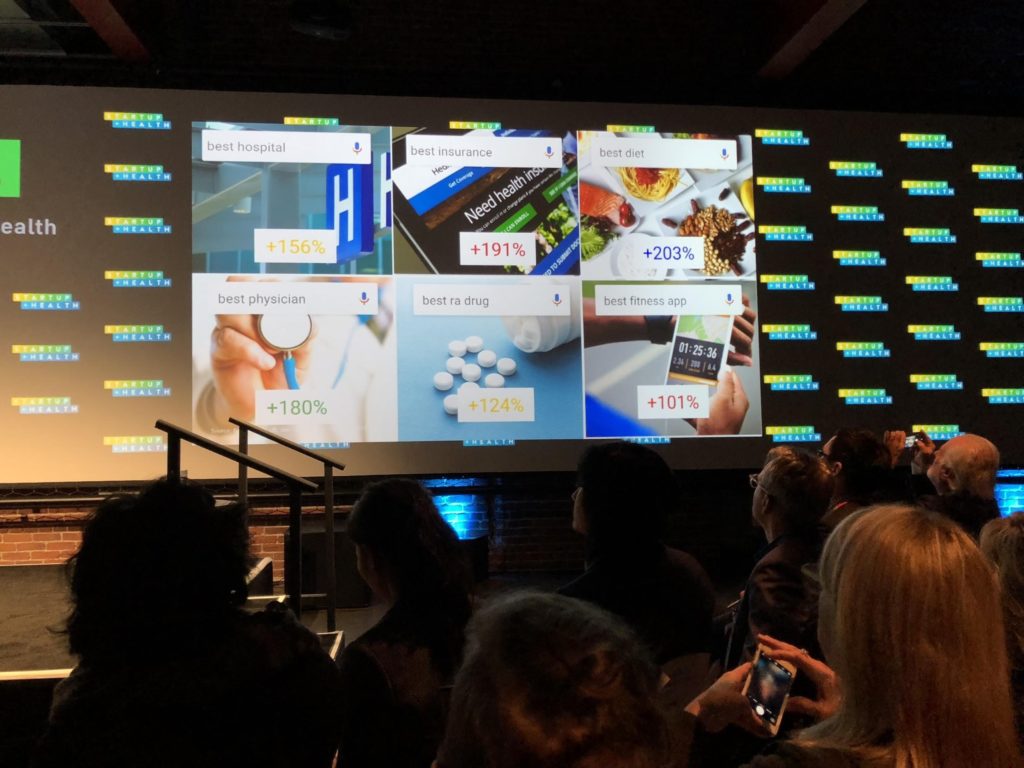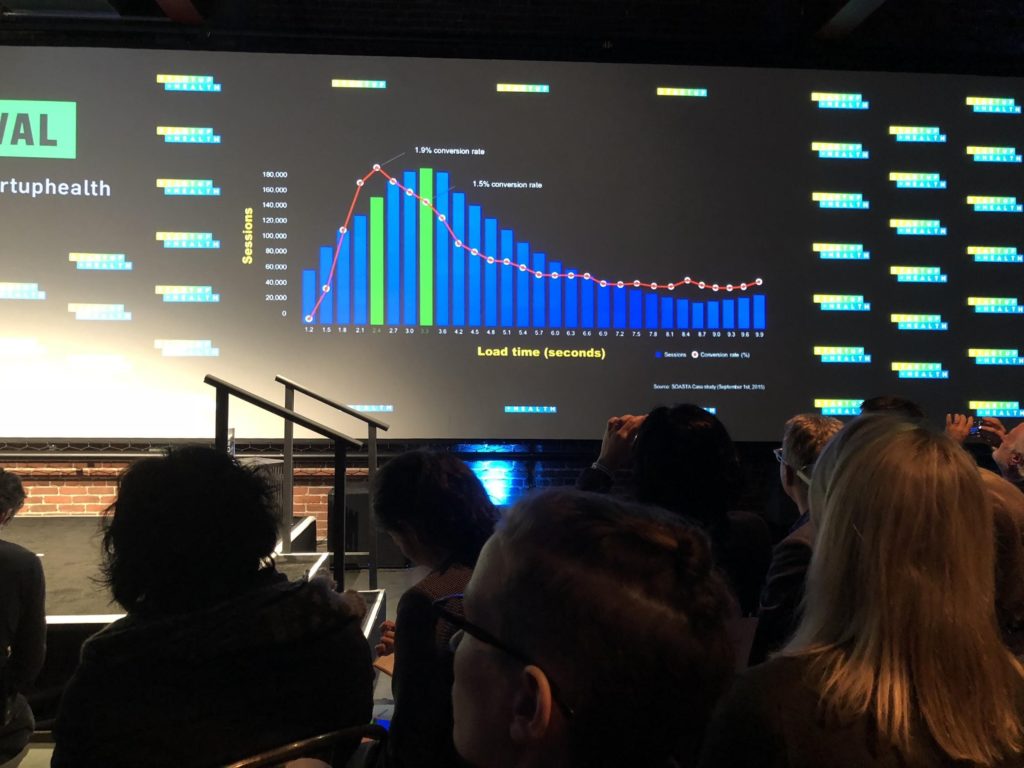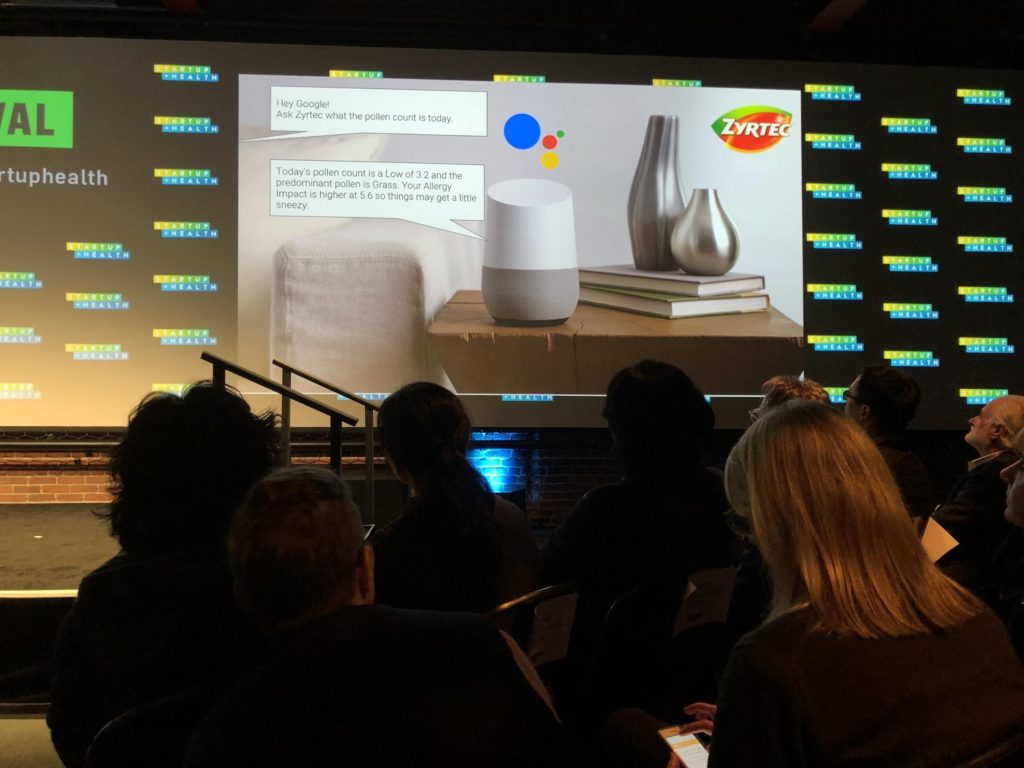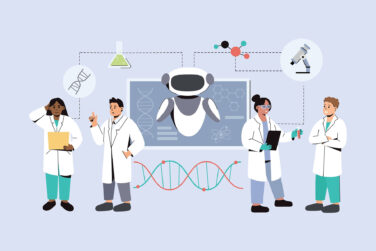Every January, tens of thousands of healthcare CEOs, investors, and business development executives descend upon Union Square and the surrounding areas in San Francisco. What once started out as a single conference, hosted by J.P. Morgan, for large life sciences companies to present quarterly investor updates, has turned into an entire week filled with hundreds of additional parties, conferences, and speaker events for everyone from diagnostics to digital health; biotech to blockchain. The event has become an annual pilgrimage for digital health startups and large tech companies to interface with the more “traditional” players (i.e., large corporations including pharmaceutical and biotechnology companies) all while learning where the industry’s largest investors see healthcare headed in the next two, five, 10, and 20 years.
What was the buzz at this year’s events? A few highlights on what’s coming—including what digital innovations may disrupt traditional healthcare players—are highlighted below.
Insights from Google – Best, Here, Now
In 2015, Google told us that 1 in 20 searches (5%) were health-related. That percentage has gone up, and Google’s latest data says that it is now its 1 in 18 (5.5%).
At the StartUp Health Festival, Jim Lecinski, VP, U.S. Sales & Service for Google, shared that in the past two years, they have seen a 4X increase in searches including “best,” and a 3X increase in searches including “now.” In the past five years, they’ve seen a 60X increase in searches with “near me.” (Interestingly enough, they are expecting those searches to even-off in the future, since many users now expect Google to serve them map results that include solutions near their location automatically.)
 We also learned that 55% of health searches are mobile—something that is extremely important for marketers to consider. Not only will Google penalize you in search results for not having a mobile-friendly site design, but you’ll also experience an increased bounce rate the longer your page takes to load.
We also learned that 55% of health searches are mobile—something that is extremely important for marketers to consider. Not only will Google penalize you in search results for not having a mobile-friendly site design, but you’ll also experience an increased bounce rate the longer your page takes to load.
 Of course, Google is much more than search. We got a glimpse into several of the more innovative health products they’re working on—including a Google Home skill with Zyrtec that enables users to ask Google what the pollen count or allergy forecast might be for a certain day.
Of course, Google is much more than search. We got a glimpse into several of the more innovative health products they’re working on—including a Google Home skill with Zyrtec that enables users to ask Google what the pollen count or allergy forecast might be for a certain day.
 Replaced by AI in 2018?!
Replaced by AI in 2018?!
Not likely in the next couple of years. At the W2O Digital Health Luncheon, Jonathan Bush, CEO & Co-Founder of athenahealth, shared his insights on where AI will take healthcare in the near future. For now, the use cases for AI that are actually saving money/reducing jobs are those that are very easily repeatable, have huge datasets, and that produce one of a finite, discrete number of results that then has a direct next step that can be automated.
For example, when someone goes in for bloodwork and then the lab tests come back, it’s usually one of two outcomes: Either you get a note from your doctor that all looks good, or something doesn’t look OK and your doctor needs to see you for an appointment to discuss. Jonathan referenced this as an example they were working on inside athenahealth, where machines can be trained to make this decision and therefore save physician practices time (and money).
M&A and What it Means for Us
In general, investors at Health 2.0’s WinterTech conference (focused on digital health investing) were less bullish on the near-term IPO market for digital health companies, but admitted that there is some liquidity opportunity for small deals (in the realm of the—although disappointing—recent $100M acquisition of Practice Fusion by Allscripts). While our healthcare lives haven’t been disrupted by digital health startups (yet!), the industry seems to be invigorated by recent and upcoming mergers and acquisitions (such as the planned acquisition of Aetna by CVS), which may allow more opportunities for value-added digital health startups to find larger companies to pay for their services.
Overall, the feeling of many who attended J.P. Morgan week this year is that we shouldn’t expect the entire healthcare industry to be turned on its head in the next couple of years. However, very few of us think that healthcare will not be disrupted in the long term by cost-cutting, consumer-focused, digital-first products and companies. With big players—big from the tech world (Google, Amazon, Apple) and from politics (Joe Biden gave a heart-wrenching keynote about his mission to end cancer as we know it)—taking notice, the U.S. healthcare system can’t keep increasing cost, decreasing outcomes, and getting away with it.
Couldn’t make it to San Francisco and want to catch up on what you missed? You can check out the Google presentation, Joe Biden’s keynote, and dozens of other speaker sessions from the StartUp Health Festival on their Facebook page. You can also see select speeches from Health 2.0’s WinterTech on their site. Finally, catch the speeches from W2O’s Digital Health Luncheon on their Facebook page.









